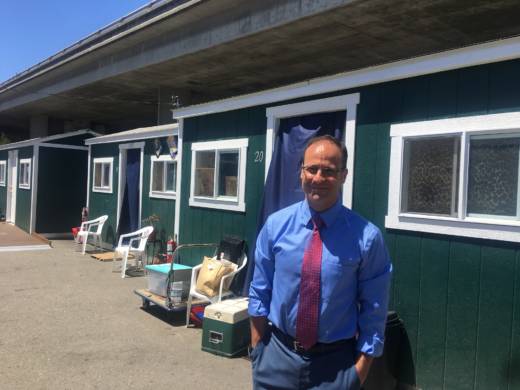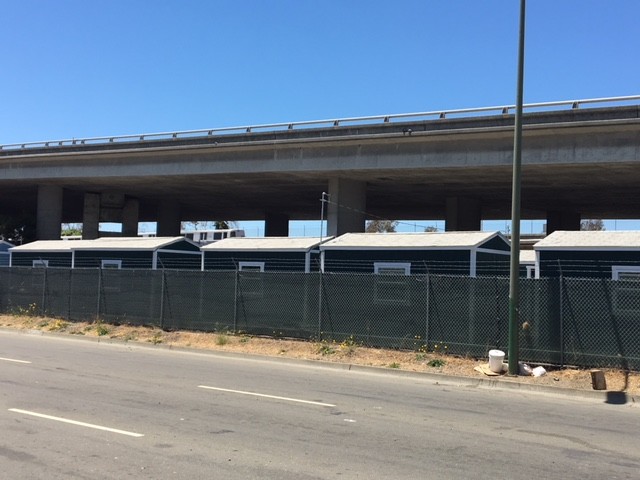They look like tool sheds, but in two spots in Oakland, they’re serving as temporary homes.
The city of Oakland has been experimenting with using Tuff Sheds as transitional housing for people who’ve been living in tents on the streets. Joe DeVries, assistant to Oakland’s city administrator, prefers to call the sheds “cabins.” People began moving into the first cabin community in Oakland, between Castro and Brush streets, in the first days of 2018, after what DeVries says was some pretty heated discussion.
“It was not as readily accepted at first because no one knew what we were doing,” DeVries says. But since then, he says the place has served at least 57 homeless people and gotten more than 20 into more stable housing. DeVries says one participant recently moved into a transitional housing center and told him, “I’m ready for walls. I don’t want to go back to living in a tent.”
The second cabin community is now about a month old. Twenty cabins were built under Interstate 980, where one of Oakland’s largest and most dangerous homeless encampments had grown. The cabins are insulated, with double-pane windows, to keep out cold, heat and noise from nearby BART tracks. Priority was given to people who had been camping out in the area the longest.
One resident, who would identify himself only as “Jermaine,” lived on the streets in the area for four years. During that time, he says he was never ready to enter a program, never ready for walls.


